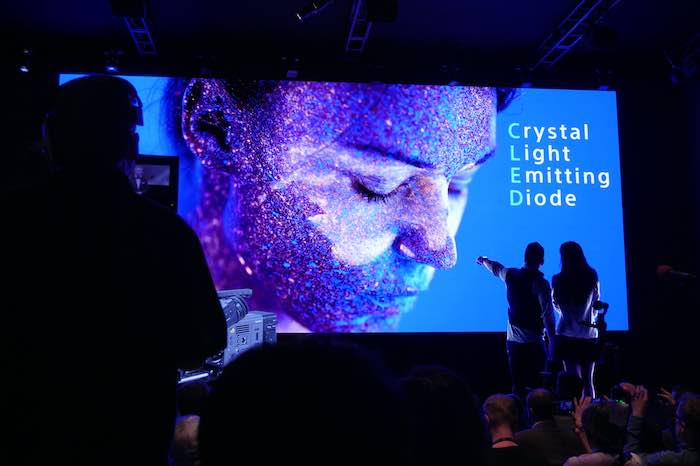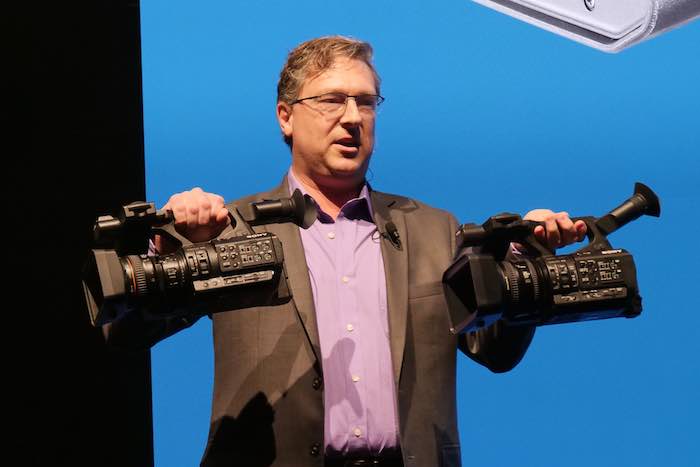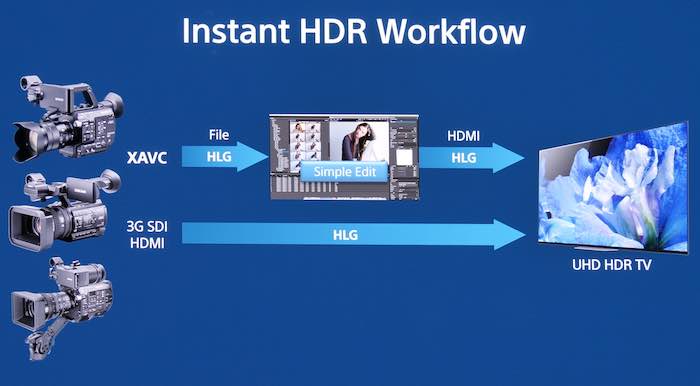Sony’s Sunday press conference covered quite a few things. I’ll focus on just a few.

New Cameras
Sony’s Peter Crithary introduced two new 4K handhelds, notable because they’re the world’s first 4K “Handycams” using three-chip designs instead of single sensors with color filter arrays.

The PXW-Z280 uses 1/2″ EXMOR-R CMOS sensors and records 50p/60p 4:2:2 10-bit clips in both 4K and HD. It has a 17x zoom lens with three “full manual” control rings for zoom, focus, and iris.
The PXW-Z190 uses three 1/3″ CMOS sensors. It too shoots 50p/60p, but 4K is captured as 8-bit 4:2:0, while HD records as 10-BIT 4:2:2. The Z190 sports a 25x zoom.
Both cameras have advanced face-detection autofocus, “Instant HDR” workflow (see below), electronic variable ND, and advanced networking features including Wi-Fi remote control.
There’s also an FS5 II, with new color science, refined picture tonality, various HFR modes, raw output built-in (not an extra-cost add-on), and the famed variable ND with an auto-ND mode.
HLG Positioning
Sony is rapidly adding HLG (Hybrid Log Gamma) encoding as an option across its line. HLG is a metadata-free HDR encoding originally designed for live broadcast by the NHK and BBC, but Sony is taking it farther. They’re talking about an “Instant HDR Workflow” based on HLG, in which HLG can be used both for live broadcast and as an acquisition encoding for simple HDR editing:
The advantage of HLG is that it’s an “easier” encoding to work with than, say, S-Log3, as no LUTs are needed. If you’re outputting an HLG-encoded file, simply edit and export: you’re done.
I note that FCPX happily lets you cut HLG files and export as HLG, HDR10, or SDR, so Sony isn’t pushing anything too controversial here. It’ll be interesting to see how widely this use of HLG is adopted.
Disclosure: I’m attending NAB on a press pass, but covering all my own costs. Sony hasn’t paid me anything.


